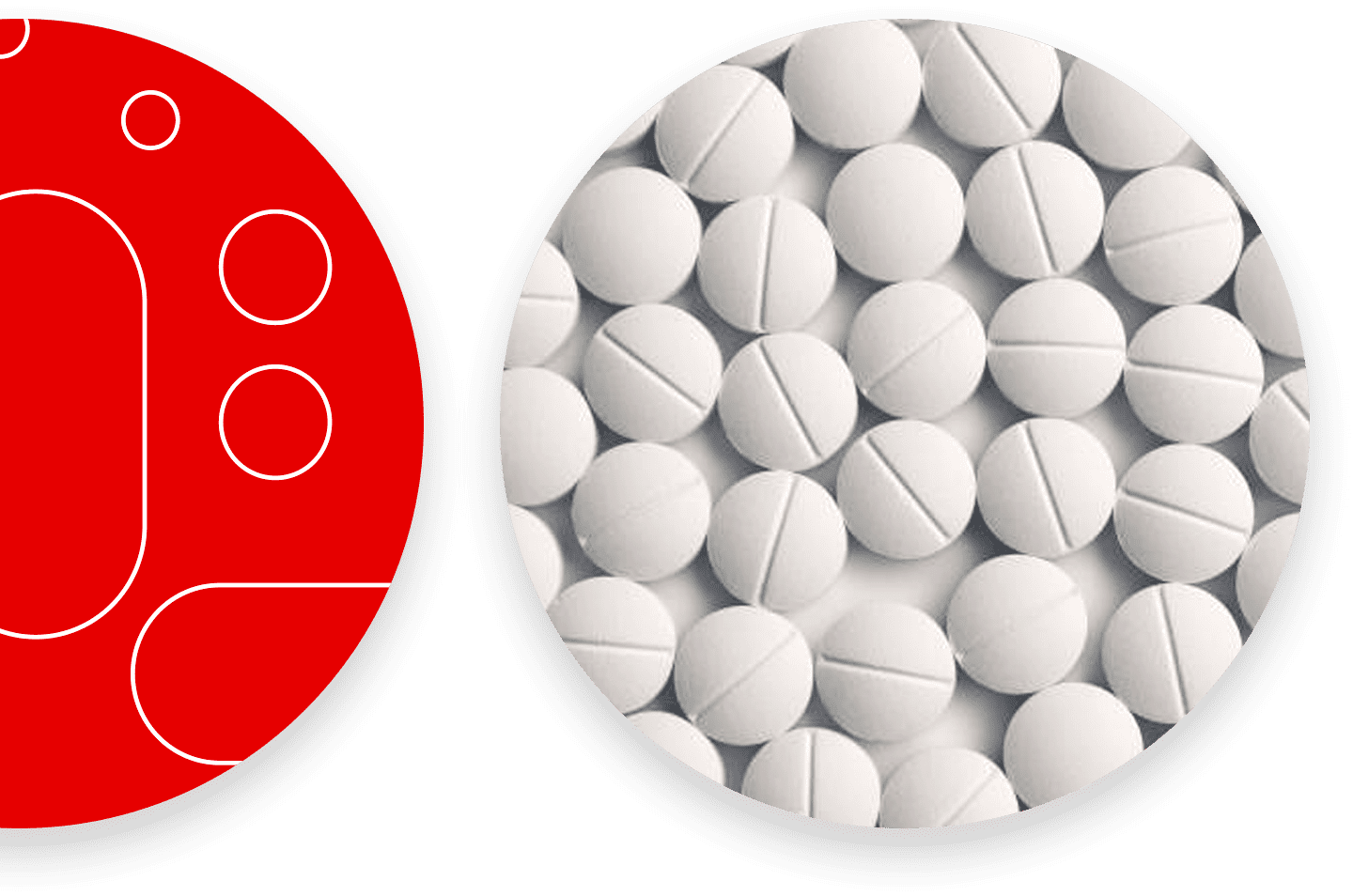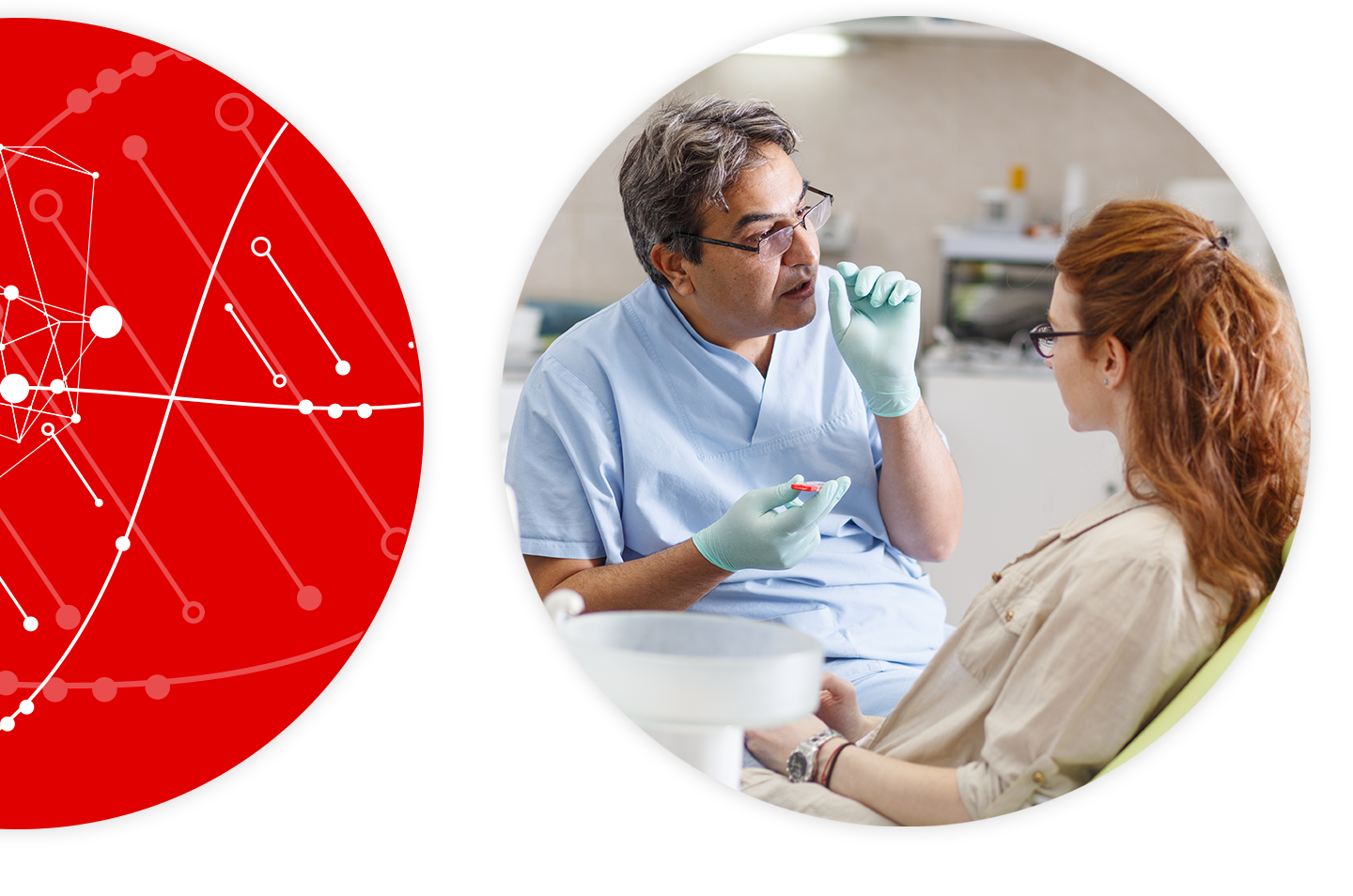Do You Have an Elevated Genetic Risk for Opioid Addiction?
Some people have an increased genetic risk for developing opioid use disorder (OUD) after taking oral opioids prescribed for them. If you have the specific genetic variants that AvertD™ looks for, you may have an elevated risk of developing OUD.
Do You Have an Elevated Genetic Risk for Opioid Addiction?
Some people have an increased genetic risk for developing opioid use disorder (OUD) after taking oral opioids prescribed for them. If you have the specific genetic variants that AvertD™ looks for, you may have an elevated risk of developing OUD.

What is AvertD?
AvertD is a genetic test that assesses 15 specific DNA markers. The AvertD test looks at DNA from a sample collected from your cheek. This test can be used along with other information about your medical background to help you and your healthcare provider understand your risk of developing OUD.

What does it mean if I have an “Elevated Genetic Risk” result?
If you receive an “Elevated Genetic Risk” result, it means that you have the specific genetic variants detected by AvertD that may be associated with higher genetic risk of developing OUD. Your risk of developing OUD is 18 times higher than those with a Non-Elevated Genetic Risk2. However, there are many factors that affect your risk for developing OUD, and genetics are only one of them. An Elevated Genetic Risk does not mean that you currently have OUD, or that you will develop OUD. Your healthcare provider will work with you to determine how best to care for you based on the test results along with other information. Your healthcare provider will discuss your pain management options with you to decide if oral opioids are right for you and your current medical situation.
If your test is Non-Elevated Genetic Risk, your healthcare provider will work with you to determine how best to care for you based on the test results along with other information. Your healthcare provider will discuss your pain management options with you to decide if oral opioids are right for you and your current medical situation.
2Donaldson K, Cardamone D, Genovese M, Garbely J, Demers L. Clinical Performance of a Gene-Based Machine Learning Classifier in Assessing Risk of Developing OUD in Subjects Taking Oral Opioids: A Prospective Observational Study. Ann Clin Lab Sci July-August 2021 vol. 51 no. 4 451-460
What does it mean if I have an “Elevated Genetic Risk” result?
If you receive an “Elevated Genetic Risk” result, it means that you have the specific genetic variants detected by AvertD that may be associated with higher genetic risk of developing OUD. Your risk of developing OUD is 18 times higher than those with a Non-Elevated Genetic Risk2. However, there are many factors that affect your risk for developing OUD, and genetics are only one of them. An Elevated Genetic Risk does not mean that you currently have OUD, or that you will develop OUD. Your healthcare provider will work with you to determine how best to care for you based on the test results along with other information. Your healthcare provider will discuss your pain management options with you to decide if oral opioids are right for you and your current medical situation.
If your test is Non-Elevated Genetic Risk, your healthcare provider will work with you to determine how best to care for you based on the test results along with other information. Your healthcare provider will discuss your pain management options with you to decide if oral opioids are right for you and your current medical situation.
2Donaldson K, Cardamone D, Genovese M, Garbely J, Demers L. Clinical Performance of a Gene-Based Machine Learning Classifier in Assessing Risk of Developing OUD in Subjects Taking Oral Opioids: A Prospective Observational Study. Ann Clin Lab Sci July-August 2021 vol. 51 no. 4 451-460


What does it mean if I have a “Non-Elevated Genetic Risk” result?
If you receive a “Non-Elevated Genetic Risk” result, this means that you do not have the specific genetic variants detected by AvertD that may be associated with higher genetic risk of developing OUD. However, there are many factors that affect your risk for developing OUD. Individuals with a Non-Elevated Genetic Risk result can still develop OUD. A “Non-Elevated Genetic Risk” result does not mean that you should be prescribed or take opioids. A decision to take prescription opioids should be made with your healthcare provider only after undergoing a clinical evaluation and risk assessment.
Updates and more information
Request the AvertD Test
If you’re interested in the AvertD test, let your healthcare provider know. Fill out our form with your provider’s contact information and we’ll contact them with information about the AvertD test.
"*" indicates required fields

